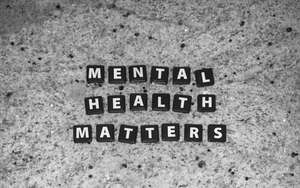
6 Signs Your Child Might Be Struggling and How to Help
Reading Time: 2min
Watching your child navigate life's challenges can be both rewarding and worrying. Sometimes it's hard to know when normal growing pains become something more concerning. Here are six signs your child might be struggling with their mental health, and how you can help in practical, supportive ways.
1. They've Withdrawn from Friends and Activities
What you might notice: Your social child suddenly makes excuses to skip parties, stops texting friends, or quits the sports team they used to love.
How to help:
Create low-pressure opportunities for connection: "I'm making your favorite cookies - want to help?"
Gently acknowledge the change: "I've noticed you're not hanging out with Maya as much. Everything okay?"
Don't force participation, but keep inviting them to join family activities.
2. Their School Work Has Suddenly Changed
What you might notice: A good student starts getting poor grades, or you get reports they're not completing work. They might spend hours "studying" but accomplish very little.
How to help:
Ask curious questions: "I noticed your math grade dropped - is something making it harder right now?"
Work with teachers to understand what they're seeing in class.
Help them break assignments into smaller, manageable steps.
3. Their Sleep Patterns Are Different
What you might notice: They're sleeping much more than usual, having trouble falling asleep, or waking up frequently. You might find them still awake at 2 AM regularly.
How to help:
Create a calming bedtime routine together - perhaps reading or listening to quiet music.
Keep screens out of the bedroom, charging phones in a common area instead.
Gently note: "I've noticed you seem really tired lately. Is something keeping you up?"
4. They're More Irritable or Emotional Than Usual
What you might notice: Small frustrations lead to big outbursts. They might cry easily or seem constantly on edge. The emotional volume seems turned up too high.
How to help:
Stay calm during emotional storms - don't take the anger personally.
Validate the feeling, not the behavior: "I can see you're really upset about this. Want to talk about it?"
Help them name what they're feeling - sometimes children lack the vocabulary for their emotions.
5. They Make Negative Comments About Themselves
What you might notice: You hear things like "I'm so stupid," "No one likes me," or "What's the point?" These might be said casually but signal deeper struggles.
How to help:
Take these comments seriously but don't overreact.
Gently challenge the thought: "That sounds really hard to feel that way. I see you very differently - can I tell you what I see?"
Notice patterns: "I've heard you say that a few times lately. Are you feeling down about yourself?"
6. Their Eating Habits Have Changed
What you might notice: They're skipping meals, eating significantly more than usual, or expressing strong dissatisfaction with their body.
How to help:
Keep family meals regular and screen-free when possible.
Avoid commenting on their body or food choices.
Model balanced eating without labeling foods as "good" or "bad."
If concerned about eating disorders, consult your pediatrician promptly.
How to Start the Conversation
When you notice these signs, the most important step is to connect rather than correct. Choose a calm moment and try these approaches:
"Hey, I've noticed you seem [tired/distant/upset] lately, and I wanted to check in. Everything okay?"
"You know I'm always in your corner, right? I'm here to listen if you want to talk about anything."
"I love you no matter what, and nothing you could tell me would change that."
When to Seek Professional Help
Trust your instincts as a parent. If these changes last more than a couple of weeks, or if your child talks about self-harm or suicide, reach out for professional support. Start with your pediatrician, who can refer you to a child therapist or counselor.
Remember that seeking help is a sign of strength, not failure - both for you as a parent and for your child. By noticing these signs and responding with compassion, you're giving your child the powerful message that their mental health matters, and that they don't have to face their struggles alone.
















